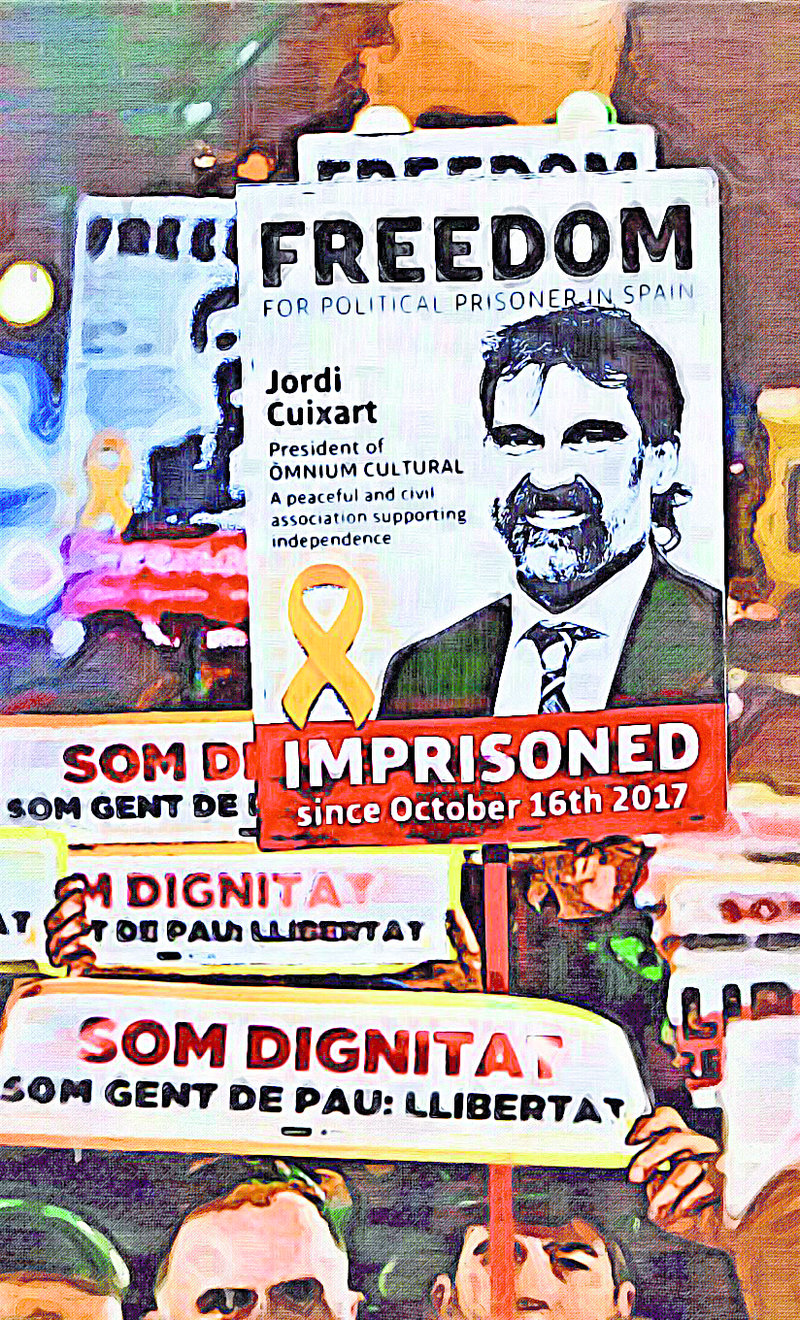Long-term resident
PORRIDGE
Every weekend, the Catalan journalist Txell Bonet catches a high-speed train from Barcelona to Madrid (a three-hour journey) together with her nine-month-old son. From the station, a friend or a taxi drives her to Soto del Real prison, where she has to hand in her bag and electronic devices before she is allowed into a booth on one side of which her husband, Jordi Cuixart, is waiting. They are allowed forty minutes to talk via a handset with atrocious acoustics. Along with this weekly shouted chat through plastic, she is allowed two visits per month in which she can see her husband in privacy for a couple of hours. This is the only time that Jordi Cuixart can hug his son. He is not a criminal, but the president of Catalonia’s largest cultural association, Òmnium Cultural, which currently has over 90,000 members. It was founded in 1961, to promote Catalan language and culture (especially literature) under a Fascist regime that was doing its level best to wipe said language off the map (indeed, Òmnium was closed down several times by Franco’s police for giving clandestine Catalan classes). On September 20th of last year, when Spanish paramilitary police began raiding Catalan government offices (without warrants) and arresting second tier officials (ditto) in a vain attempt to prevent the October 1st referendum on independence, a huge crowd of protesters gathered spontaneously outside the Catalan Ministry of Economics. Later that day, Cuixart and Jordi Sànchez (the leader of the grass roots, cross-party, pro-independence organisation known as the Catalan National Assembly) joined the crowd, asked the Spanish police permission to stand on their patrol cars to address it, were granted it, did their addressing, and then asked the crowd to disperse peacefully (there is video footage of Cuixart doing precisely this). On October 16th, Cuixart and Sànchez were put in preventive custody without bail, charged with violent rebellion and sedition. At the time of writing they have been in jail for over three months, with no sign of a court case on the horizon. Cuixart shares a cell with an Irish drug dealer, with whom he is practising his English. He spends many hours answering the thousands of letters he receives every month (the prison guards were astonished by the sheer quantity of his correspondence, which is perhaps why they address him as ’señor Cuixart’). As he can have no telematic contact with the outside world, he relies for news on the above-mentioned letters, plus newspapers (which reach him seven days late) and of course his wife. His fellow inmates all say the same thing: that he is so lucky, because, having done nothing, he can feel no regret or remorse. In Spain prisoners can be kept in jail for two years without trial, a period extendable to four, if the judge deems it necessary. As the prosecution, in this case, is trying hard to create what amounts to a judicial work of prose fiction in order to make its charges stick, there is, as yet, no foreseeable light at the end of Jordi Cuixart’s particular tunnel. Unless the so far stunningly aloof EU authorities wake up to the fact that their indifference to the fate of Cuixart and the other Catalan prisoners is as unjust as it is unjustifiable. As things stand, it would seem these authorities are currently trapped - imprisoned, perhaps? - in the land of Nod .


